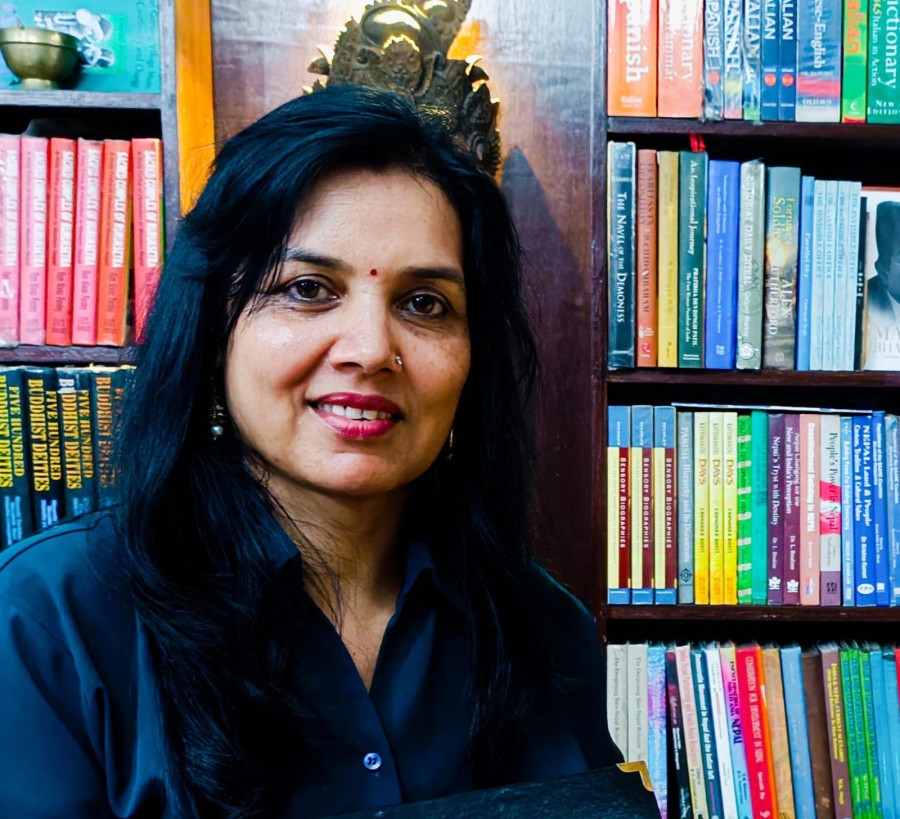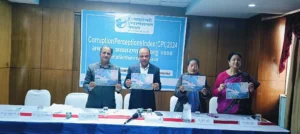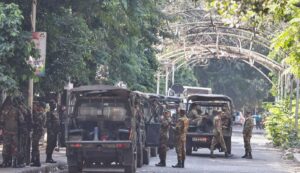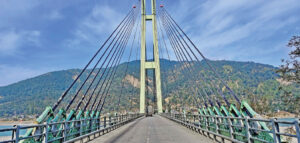
Tripathee has composed two volumes of verse and seven other books in different scholarly classes, counting ‘Ma Eklo Ra Udaas Ustai’ (2014), a collection of papers and ‘Simal ko Geet’ (2015), a collection of expressive sonnets. Her works investigate women’s issues, natural concerns, and societal shameful acts, and she as often as possible contributes to daily papers to raise mindfulness around these subjects.I started composing to fight loneliness
In this chat with the Post’s Aarya Chand, Tripathee offers experiences into her scholarly travel and talks about how her energy for composing has advanced over the years.I started composing to fight loneliness.
What propelled you to begin composing poetry?
It all started when I begun school at the age of five. As my domestic was distant from where I examined, I lived with my father and saw my mother as it were on ends of the week. This division made me feel removed from her, and maybe this depression driven me to type in. Being encompassed by nature too sustained my creativity.
On ends of the week, I would tune in to the radio. At that time, I had fair started composing, maybe unwittingly impacted by the Radio Nepal writing programs and the tunes I frequently tuned into. My early compositions included ‘Saraswati Vandana’ and different supplication songs.
One of my most prominent motivations is Bhakta Bahadur Balayar, the previous serve of Populace and Environment and my English instructor. He once lauded my answers in an English exam by gifting me two little volumes of verse from his possess collection, perfectly wrapped in paper. That minute developed my adore for literature.
What subjects do you investigate in your work, and how has your childhood in Kavrepalanchok affected your composing fashion and focus?I started composing to fight loneliness.
Age plays a critical part in forming what scholars select to type in around. Whereas inventiveness remains steady, topics advance as we develop. Being a lady implies I am normally touchy to the battles confronted by ladies. Be that as it may, my composing is not compelled by age, religion, or gender—anything tricky captures my attention.
For occurrence, once on my way to college, I saw somebody eating from the junk on the roadside. It was early morning, and I had never seen such a thing in my town. Observing him choose a little piece of nourishment from the waste frequented me—I couldn’t eat for three days, pondering how he overseen to survive. That encounter driven me to type in the sonnet ‘Garib ko Astitva’.
My childhood in Kharelthok town in the Kavrepalanchok locale impacted my composing. Developing up close the Palanchowk Bhagwati Sanctuary, I seen the separation confronted by minimized ladies. They might not enter certain ranges to bring water and had to depend on the so-called ‘upper class’ for assistance.
This sense of bad form propelled me to type in the tune, ‘Sano Huda Xuna Paina Aphnai Pani Padero Thulo Vaye Lagyo Sara Sansar Nai Adhero,’ which is portion of my ‘Thunga Boycott Fulka’ collection of expressive lyrics. I too composed the melody ‘Chhal Uthyo’ amid my voyages as a educator to Trishuli-Galchi. Through encounters like these, I have learned that the environment we develop up in and the individuals we experience shape our writing.
How do you approach scholarly feedback, particularly given your encounters critiquing scholars like Laxmi Prasad Devkota and Madhav Prasad Ghimire?
For me, scholarly feedback is individual and established in lived encounters. My mother presented me to Laxmi Prasad Devkota early on. Amid intelligent like Aincho-Paincho, a hone of allow and take, she would frequently cite his lyric: “Haata ka maila, suna ka thaila, k garnu dhana le, saag ra sishnu khayekai besa, anandi mana le.”
Devkota’s center on nature and the Dalit populace, nearby his endeavors to combat separation, cleared out a enduring affect on me. His compositions strikingly upheld the minimized, which was uncommon for his time.
As for Madhav Prasad Ghimire, I met him at scholarly occasions and indeed looked for his offer assistance with my to begin with tune. He afterward welcomed me to evaluate his girl Jyoti Poudel’s melodies at a open occasion, stamping my to begin with encounter as a faultfinder. Both scholars, presently considered classical, were ahead of their time in tending to social issues, and their works proceed to rouse me.
Your compositions frequently address societal treacheries. Can you talk about your sees on the part of writing in supporting for women’s rights?
Literature plays a imperative part in supporting for women’s rights by challenging destructive societal standards and raising mindfulness around sex disparity. In our society, numerous men, whether intentionally or unconsciously, compose in a way that lessens women’s regard due to patriarchal childhood. It is our duty to highlight these botches and empower alter. Words like ‘aaimai’, ‘swasni’, and others that propagate negative generalizations of ladies ought to be annihilated. For occurrence, I found that school stories frequently depicted fathers as learned and dynamic, whereas moms were delineated in a detached, strong part, fortifying sex stereotypes.
We ought to expel them instep of fair supplanting such words to alter our attitude. Words don’t have inborn implications tied to blood, so their utilize ought to be carefully considered. Journalists like Radhika Kalpit, with her brief story collection ‘Sammohan’, and Jaleshwari Shrestha, originator of ‘Gunjan Nari Sahitya Sanstha’, have cleared the way for examining unthinkable subjects like monthly cycle and caste-based issues in marriage. Their works make a stage for imperative discussions that can drive alter, underscoring the need for more prominent representation of women’s voices in literature.
Your works have been deciphered into a few dialects. How has the interpretation of your works affected the reach and acknowledgment of your poetry?
Concerns around Nepali writing assembly worldwide measures have long existed. In any case, there is a developing intrigued in verse, with interpretation playing a key part in this advancement. My inclusion in occasions like the 2010 SAARC Verse Conference in Delhi highlighted how interpretation can join together artists and energize cross-cultural exchange.
Later, I had the benefit of having my work deciphered into Korean, along with commitments from nine other Nepali writers. My works have too been deciphered into Vietnamese and Bengali and have showed up in worldwide newspapers.
Any plans for your future publications?
My final expressive verse collection was distributed in 2015, and since it’s been ten a long time, my companions have empowered me to discharge another one.
I will discharge a modern collection titled ‘Geeta Tripathee Ka Kehi Kabita Haru’ at some point this year. I’ve moreover begun deciphering it into English. Furthermore, I’m working on a melody that the late Amar Gurung made a difference me with. In spite of the fact that advance ended after his passing, I arrange to wrap up it before long.
Related,
Kathmandu, Lalitpur metropolises take charge of traffic management








2 thoughts on “I started composing to fight loneliness”